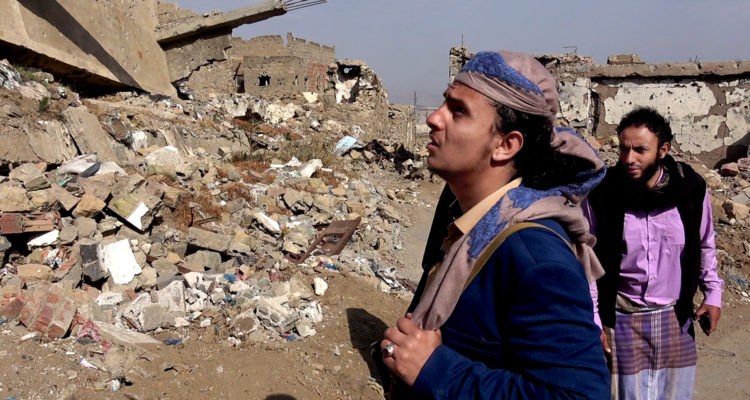So long as groups such as al-Qaeda and ISIS are able to act with impunity in Yemen, the more remote are the prospects of ending this dreadful conflict anytime soon.
By Con Coughlin, The Gatestone Institute
As if war-torn Yemen did not have enough violence to contend with at present, the recent spate of terror attacks in its southern port points to the return of Islamist terror groups such as al-Qaeda and ISIS, which are still plying their deadly trade in the country.
In the latest wave of terror attacks last month, a suicide bombing in Aden has claimed the lives of three members of Yemen’s security forces while, in a separate attack, a senior Yemeni security official survived a roadside bomb attack against his convoy in the center of the city.
Initially Yemeni security officials said the attack had been carried out by al-Qaeda, which has claimed responsibility for a number of recent attacks in government-controlled territory in the south of the country. In early August, for example, an al-Qaeda attack on a military base claimed the lives of 19 Yemeni soldiers.
In what is, however, a graphic illustration of the ease with which rival Islamist terror groups are now able to operate in this lawless country, it was the Islamic State (ISIS), not al-Qaeda, that eventually claimed responsibility for last weekend’s attacks.
Al-Qaeda and ISIS have become fierce rivals in recent years, with ISIS the more recent manifestation of militant Islam that was responsible for establishing the so-called caliphate in Iraq and Syria. ISIS claims it is a more extreme alternative to al-Qaeda, the original iteration of Islamist-inspired terrorism.
Both organisations have a history of taking advantage of the chaos created in failed Muslim states to establish bases from which they can plot attacks against the West and its allies. After the recent setbacks they have suffered — al-Qaeda in Afghanistan, and ISIS in Iraq and Syria — it is logical that they should turn to Yemen to establish a new foothold.
Al-Qaeda has been operating in Yemen for several years, after the group established its new franchise, Al-Qaeda in the Arab Peninsula (AQAP). The regrouping was just one result the U.S.-led coalition’s having destroyed the organisation’s terrorist infrastructure in Afghanistan in the aftermath of the attacks of September 11, 2001.
Most famously, AQAP used its Yemeni base to plan its attempt to send two ink-cartridge bombs to synagogues in Chicago on flights from the Gulf state of Qatar in late 2010. The plot was foiled following a tip-off from Saudi intelligence officials.
AQAP remains a top priority for American counter-terrorism officials; U.S. drones regularly attack AQAP positions in Yemen from their base in the African port of Djibouti.
The ability of groups such as al-Qaeda to carry out their operations in Yemen has been limited in recent years, since the military intervention of the Saudi-led coalition, which is fighting Iranian-backed Houthi rebels after they attempted to seize control of the country in 2015.
Recent tensions within the coalition between the Saudis and the Emiratis, over which faction they support in the Yemeni government, has added yet another political dimension to the country’s bitter civil war — one Islamist terrorists have been quick to exploit.
‘A civil war within a civil war’
The root of the tensions between the Saudis and the Emiratis, who provide the bulk of the coalition forces fighting the Houthi rebels, is over their continued support for the U.N.-backed government of President Abed Rabbo Mansour Hadi. In what has been dubbed a “civil war within a civil war”, the Saudis are continuing to back Hadi, while the Emiratis have decided to back southern separatist militias known as the Southern Transitional Council (STC) who oppose Hadi’s links with Islamist groups associated with the Muslim Brotherhood.
The Saudis and Emiratis are now trying to heal the rift by hosting a peace conference involving the rival factions, in Jeddah.
While the political uncertainty continues, however, al-Qaeda and ISIS are taking advantage of the political vacuum to reestablish their own operations in the country, a deeply worrying development that certainly does not bode well for UN-sponsored attempts to end the country’s long-running civil war between the government and the Iranian-backed Houthis.
So long as groups such as al-Qaeda and ISIS are able to act with impunity in Yemen, the more remote are the prospects of ending this dreadful conflict anytime soon.
Con Coughlin is the Telegraph‘s Defence and Foreign Affairs Editor and a Distinguished Senior Fellow at Gatestone Institute.





